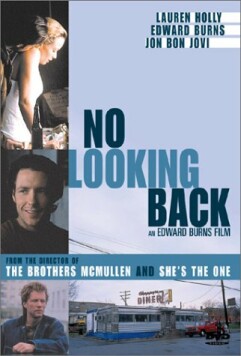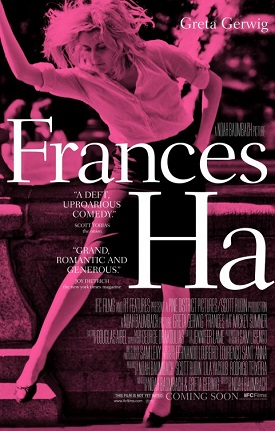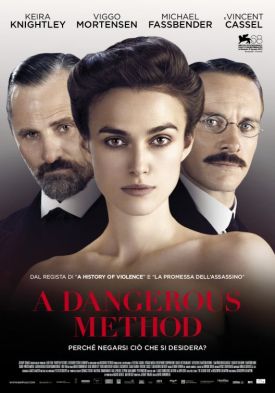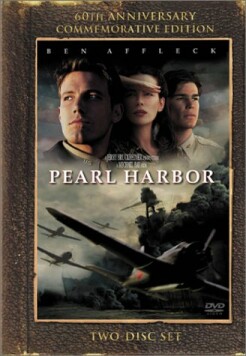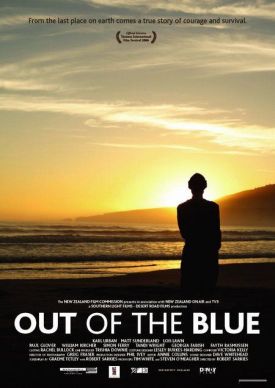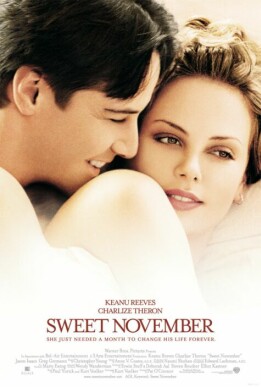No Looking Back
Edward Burns’s young career as a
director has gone from promising (The Brothers McMullin) to flabby
(She’s the One)
to utterly self-indulgent and silly in his latest and, I hope, last film, No
Looking Back. The big idea here is to take that over-familiar and by now
thoroughly boring conceit of the 1950s (most recently recycled in Going All
the Way), the young man’s coming-of-age by leaving the amiable mindlessness
of small town life, and to apply it to a young woman. Of course if you are one
of the doctrinaire types who insist on refusing to recognize any difference
between men and women you will applaud on principle, but for anyone who still
hopes for a bit of plausibility in the movies, the idea of Lauren Holly driving
her beat-up old car off onto the great American road, alone, to the strains of
Patti Scialfa singing
“I’m
a Big Girl Now” is just ridiculous
Burns himself plays Charlie, a young man returning home to a seaside small
town on Long Island after an absence of three years. He had left after his
girlfriend, Claudia (Miss Holly), a waitress, got pregnant. Having persuaded her
to get an abortion he had “stayed to
make sure everything was OK” and then left to follow his own wandering star. It
took him to California where he flopped with a friend for a while, drifted from
one job to the next, then decided to try going home again—partly because
he still carries a torch for Claudia. But Claudia by this time is living with
Charlie’s best friend, Michael (Jon
Bon Jovi) and trying to persuade herself that
“we got a good
thing.” Michael is a decent sort who
wants to get married and is indignant at
Charlie’s treatment of Claudia years
before, so he is naturally meant to be seen as a sap. Claudia and Charlie
briefly rekindle their romance, but it only makes her see how unhappy she is
with home and work and domesticity.
Burns’s writing and direction,
never that tight to begin with, has become intolerably slack, and his acting is
an embarrassment. His well publicized affair with Miss Holly while they were
making the film, an affair which broke up her marriage to Jim Carrey, seems to
have given him the idea of having his character and Miss
Holly’s greet each other at every
meeting with a knowing smirk, partly to let the audience in on their not-so
secret secret and partly to suggest that their characters, who are supposedly
ex-lovers separated for three years, cannot forget each other.
Burns’s idea of sparkling dialogue is
“What’s
up with that?”
“What’s
going on with you?”
“Are you OK with
that?”
“So what are you trying to
say?” and other slacker catch-phrases
used as conversational gambits between swigs of ever an ever-present bottle of
beer. This is intended, presumably, to add an air of authenticity to the
proceedings.
Yet it comes across not only as morally squalid but as boring. There is not a
single funny line in the picture, which is an indication either of
Burns’s incompetence as a writer or of
the laughable seriousness with which he takes himself. Morally, there is nothing
surprising in the script’s closely
adhering to Hollywood orthodoxy which, as we have often had occasion to notice
in the past, holds that all human ties and obligations are subject to instant
revocation if
“happiness”
is at issue. A man’s leaving his
family, as Claudia’s father has done, or a
woman’s aborting her child are
unexceptionable acts (Claudia says she “understands” her father’s action), so
long as they are done for the sake of happiness. Likewise, a woman and a man
cheating on the man’s best friend is
not a problem. The worst thing in the world for these cases of arrested moral
development is the prospect of taking on what used to be thought of as normal
adult responsibilities.
Discover more from James Bowman
Subscribe to get the latest posts to your email.

